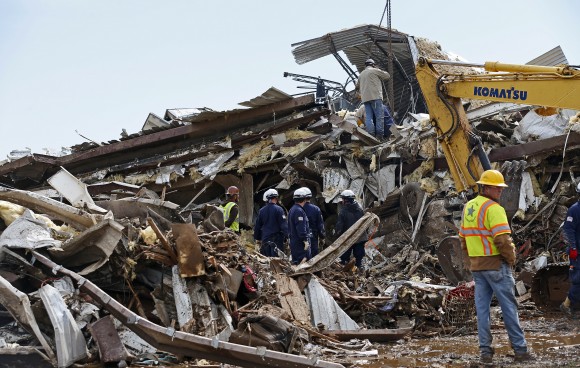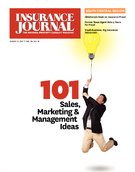In testimony on Capitol Hill in early August, Oklahoma Insurance Commissioner John Doak told federal lawmakers that fraud across all lines of insurance costs the industry an estimated $80 million to $100 million annually.
Testifying on insurance fraud issues at a U.S. Senate Committee on Commerce, Science and Transportation subcommittee hearing on Aug. 3, Doak represented the National Association of Insurance Commissioners (NAIC) as chair of the NAIC’s Antifraud Task Force. He told members of the Subcommittee on Consumer Protection, Product Safety, Insurance, and Data Security that in property/casualty insurance lines alone, more than 10 percent of claims are estimated to be fraudulent.
Doak said contractor and adjuster fraud following natural disasters is one of the more troubling trends faced by state insurance commissioners when it comes to insurance fraud.
“State insurance departments have seen a number of instances of contractor and adjuster fraud recently that have occurred immediately after floods, tornadoes and other natural disasters. Contractors or insurance adjusters have required advance payments from consumers for services or advance assignment of insurance policy benefits. In these cases, the contractors sometimes disappear without ever doing the work. In other cases where repairs are made, the contractor engaging in this conduct does substandard work using substandard materials,” Doak said in his prepared statement.
Responding to a question from the subcommittee chairman, Sen. Jerry Moran of Kansas, Doak said that unfortunately many of the people who are taken advantage following natural disasters are seniors.
Citing Oklahoma’s experience following the Moore, Oklahoma, tornado in May 2013, after which more than 80,000 claims were filed, Doak said “you have folks that go through these neighborhoods [who] really prey upon unsuspecting consumers that have never had this size of a catastrophe.” The scammers will put a tarp on roof of a hail or tornado-damaged home, “then they’ll put liens on [the insured’s] property and they’ll find out later through the claims process that there is a lien on the property.”
Asked by Sen. Moran how such activity constitutes insurance fraud as opposed to other kinds of fraud, Doak explained that “when it deals with the insurance policy, when they are doing work and billing it back to the insurance company for some type of fraudulent activity, that’s where it crosses the line into insurance issues. No matter what state they’re in, if they’re getting payment from the insurance companies, that’s where the fraud is happening.”
Doak said that in Moore contractors now are required to be registered with the municipality even if they are from out of state. He called that a “best practice” that provides consumers with a recourse if disputes occur. Contractors have to register at the local level and “show they have liability insurance and there’s recourse if someone gets injured on the insured’s property. That there’s some recourse to find them, they’re just not fly-by-night,” he said.
Other insurance-related activities that are of increasing concern include medical equipment and identity theft schemes targeted at seniors, opioid abuse-related insurance fraud, auto windshield replacement scams and life insurance fraud, Doak said.
“These examples are a few of the recent trends that we have observed, but other fraudulent scams have been around for some time, such as staged auto accidents with the resulting fraudulent automotive and medical claims, faked workers’ compensation claims and arson by homeowners,” he said.
Also speaking at the hearing, which was titled “Insurance Fraud in America: Current Issues Facing Industry and Consumers,” were Dennis Jay, executive director of the Coalition Against Insurance Fraud; Sean Kevelighan, CEO of the Insurance Information Institute; Tim Lynch, director of government affairs for the National Insurance Crime Bureau and Rachel Weintraub, general counsel for the Consumer Federation of America.
Topics Trends Catastrophe USA Fraud Contractors Oklahoma
Was this article valuable?
Here are more articles you may enjoy.



 The $10 Trillion Fight: Modeling a US-China War Over Taiwan
The $10 Trillion Fight: Modeling a US-China War Over Taiwan  Trump’s EPA Rollbacks Will Reverberate for ‘Decades’
Trump’s EPA Rollbacks Will Reverberate for ‘Decades’  A 10-Year Wait for Autonomous Vehicles to Impact Insurers, Says Fitch
A 10-Year Wait for Autonomous Vehicles to Impact Insurers, Says Fitch  How One Fla. Insurance Agent Allegedly Used Another’s License to Swipe Commissions
How One Fla. Insurance Agent Allegedly Used Another’s License to Swipe Commissions 


